-
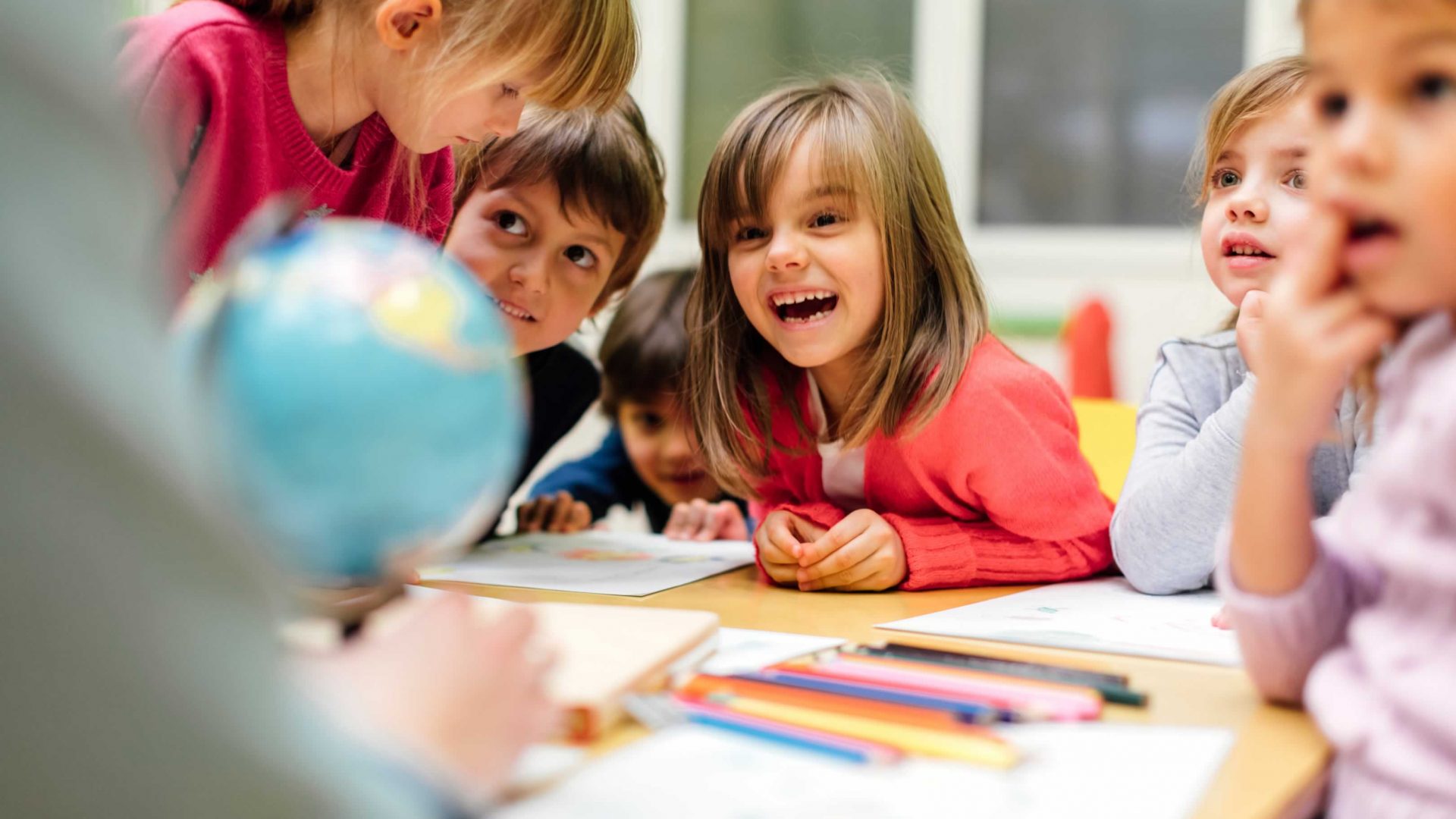
Newsfeed
Caldecott Women Caring for Children for over a Century.
Today we celebrate International Women’s Day, (IWD 2023). In this blog post, a member of our executive team, Caroline Hallett takes a look back at the history of The Caldecott Foundation, sharing some information about some of the innovative and resourceful women who have helped shape our charity.
The Caldecott Foundation was founded by Leila Rendel and Phyliss Potter. Two young women who wanted to make a difference in the lives of children from working-class families living in and around a matchstick factory in St Pancras, London. For many of these families, the workhouse was an ever-present danger and their mothers worked long hours trying to keep a roof over their children’s heads, and consequently, their children needed care and support. Leila and Phyliss were born into a life of privilege, yet following a strong tradition of philanthropic endeavour, both trained as teachers and were passionate about wanting to improve outcomes for disadvantaged children. This led to them setting up a children’s nursery in 1911, which is the beginning of our story.
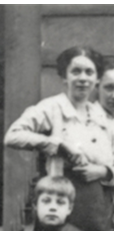
Phyliss was born in 1886 and is pictured here at the Nursery in Cartwright Gardens around 1912. She took on the role of co-director with Leila when it moved to Kent. Students have said that she had a beautiful speaking and singing voice, a regal air, kindness, and a deep interest in a child’s view. After 20 years of dedicated service, she left Caldecott in 1931.
Leila grew the organisation and oversaw the seven moves from London to Kent, via Dorset. She worked tirelessly for Caldecott for over half a century. In 1947, Leila helped set up the first experimental reception centre in England to assess the most appropriate home for children who could not live with their 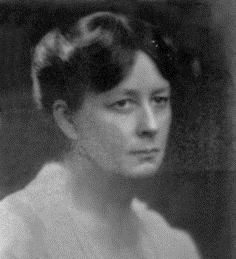
parents. She was awarded an OBE medal for her work in the 1948 New Year’s Honours list. Through crisis and change, Leila Rendel continued to embody the love, comfort and stability that provided the community’s therapeutic approach. Her success lay in her ability to connect with children. Leila was a director of our charity until 1967, aged 84 when she retired.
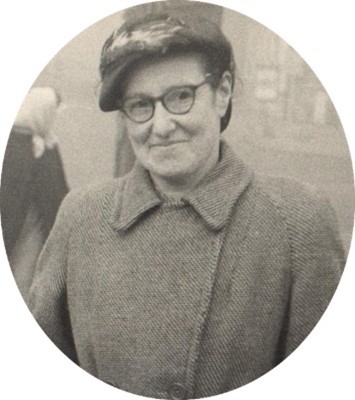
Ethel Davies, (affectionately known as Miss Dave), answered an advertisement for staff placed by Leila “wanted, someone who enjoys working hard for little money”. (We still expect our teams to work hard – if you would like to work for us, please see https://www.thecaldecottfoundation.co.uk/careers/ )
After some months working at Caldecott, Ethel was joined by her friend Betty Hillyer, and they worked together in the Pantry and Dining Room. Later Betty moved into full-time cooking duties, whilst Ethel was moved from Pantry work to become the girl’s Matron. When Phyllis Potter decided to leave the Community in 1931, Miss Leila appointed Ethel as a second Director. Ethel and Leila were to work in excellent harmony for over forty years. Ethel Davies retired from the Community in 1972 passing away two years later at the age of 77.
For nearly 40 years the staff teams at Caldecott were almost exclusively women. Elizabeth Lloyd a staff member with over 35 years of service, wrote a book “The Story of a Community” in which Roma Easton, (Miss E) said of Leila and Phyliss “they had had the vision to start it all and with them some ten others who stand out in memory as a band of able and devoted women whose concern was the development and welfare of the children in their care; they were dedicated and loyal; and how they enjoyed it all!”
As the nature of children’s care and education changed, so did the leadership of the organisation – passing to James King in the 1960s, however beside every great man, there is often to be found a great woman. James could not have done what he did without her. Our alumni speak very warmly of Tessa King. She provided pastoral care, support, and love to our children for many years, also raising her own family during this time, living as one big family in our current home. Tessa maintains her strong links to Caldecott, attending reunions with her son Matthew and supporting Simon Rodway (past Chair) in his endeavours, keeping this connection of past and present alive.
In addition to those hundreds of women who have worked directly with our children, there are many more women who have served as trustees of our charity leading very successful fundraising campaigns, offering patronage and strong stewardship. They include Lady Lucy Faithfull, Princess Alexandra, Lady Patricia Mountbatten, Lady Mary Moser, Lady Amanda Ellingworth, and many more dedicated and intelligent women.
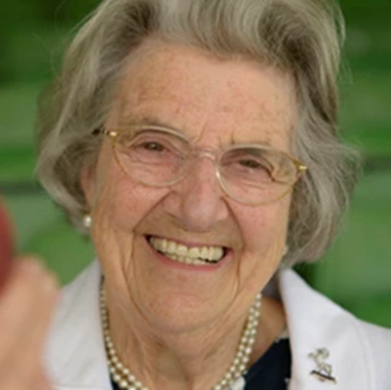
Pictured is Lady Rosemary Kingsdown OBE who managed fundraising appeals at Caldecott for over thirty years including the Hope Appeal which enabled us to move from Mersham-Le-Hatch to our present site, the establishment of the current secondary school and our children’s homes on the Paddocks site.
To do justice to the history of our organisation, and the role woman have played in its success, we would need many more words than this blog post allows. For those readers interested in more information we would recommend the website of our friends at the Caldecott Association, https://caldecottassociation.org.uk/ which contains many excellent first-hand accounts of the work of these pioneering women, kindly written by the children they cared for.
In the Caldecott Foundation today women make up over two-thirds of our workforce, 5 out of 7 of our children’s homes registered managers are women (slightly higher than the national demographics for children’s home managers where 63% are female). In terms of leadership of our charity, our executive team is comprised of five men and nine women, and 40% of our trustees are female.
The theme of the United Nations International Women’s Day this year is “DigitALL: Innovation and technology for gender equality”. It is therefore appropriate that the senior leaders of our children’s homes are meeting today for a workshop delivered by Helen Lee, our Head of Quality, Becky Bush, Registered Manager of one of our homes in the East Midlands, Helen Way our Digital Systems Officer, and me, as the learning and development lead for Caldecott. Our workshop session will ensure we have digital recording which is trauma-informed, fit-for-purpose and kind. These developments have been designed and led by people with care experience on behalf of the children we currently care for.
We are privileged to stand on the shoulders of giants, continuing their legacy, serving the children in our care, education and fostering organisation. We pay tribute to all the women who have been part of the Caldecott family over the past 112 years, helping children build a future.
Thank you.
